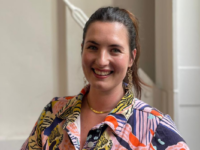Female micro-business owners have expressed their frustration over how the finance sector has been treating them, from being asked to put in a man’s name, to having their credit ratings ruined due to a breakup, to being ignored by investors who prefer a pitch to be done by a male.
These insights were revealed in the recent Financial Services Provider Forum, hosted by not-for-profit Global Sisters, which explored how the financial services industry can fix finance for women in the micro-business sector.
The forum heard stories from female micro-business owners, particularly the struggles they’re facing. These were affirmed by River Paul, Director of Economics and Data Analytics at the Australian Small Business and Family Enterprise Ombudsman (ASBFEO) in a survey they conducted, which found that 40 per cent of respondents stated that access to capital was a barrier and women reported both “conscious and unconscious bias” in lending practices.
In response, Global Sisters CEO Mandy Richards called on the finance sector to engage with women in micro-business and design loan and insurance products that would enable self-employment to be a genuine option for women.
Richards also called attention to the need to rewrite the entrenched but untrue myths about women and their grasp of their business financials, the likelihood of a women-led business successfully servicing loans, and assumptions related to a woman and her ability to manage caring responsibilities while running a successful business.
“Men have most of the capital and they fund ideas and concepts that are in their lived life experience,” Monica Bradley from Purposeful Capital said, adding that a Harvard Business School study recently found that women had a much lower rate of failure in business than men. When it came to funding, they were also more likely to give a much more accurate description of what they would achieve.
“There is a total invisibility of statistics on women and women in business,” Bradley said. “Nothing under $75,000 even makes it into the ATO records so a lot of micro-businesses are invisible.”
The forum also explored how financial products can be weaponised in the context of partner violence. Catherine Fitzpatrick, founder and director of Flequity, shared that in some instances a partner will withdraw funds from joint bank accounts or refuse to pay a mortgage.
The forum also shared some positive developments such as Irene Tsang’s Lift Woman, a rewards-based crowdfunding platform where people can directly back a woman’s business at the start-up and early growth stage.
“We believe if we have the equal access to capital and opportunity, any woman’s ideas and business could have the potential to become the next unicorn,” Tsang said. “They need to have had the opportunity to start.”
Small Business and Family Enterprise Ombudsman, Bruce Billson, averred that Australia needs to find more ways to nurture possibilities, making it more likely success is within reach of every woman.
“It is not within our gift that every business will become a success, but it should be our mission to make sure no businesses fail from simply not knowing about or having access to something which might have made all the difference,” Billson said.















